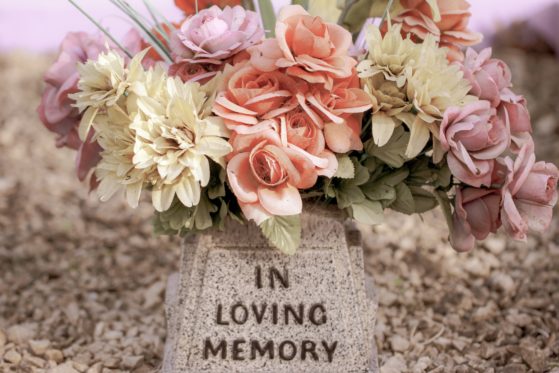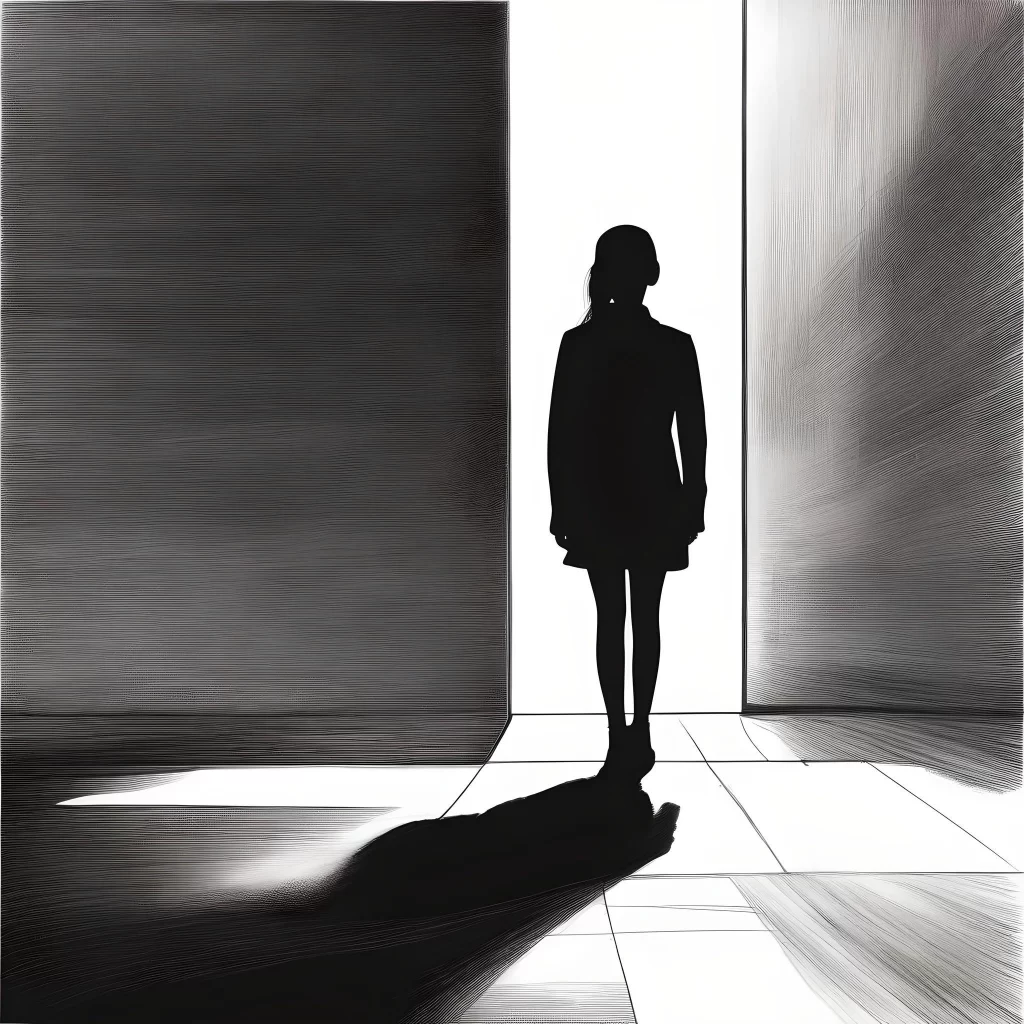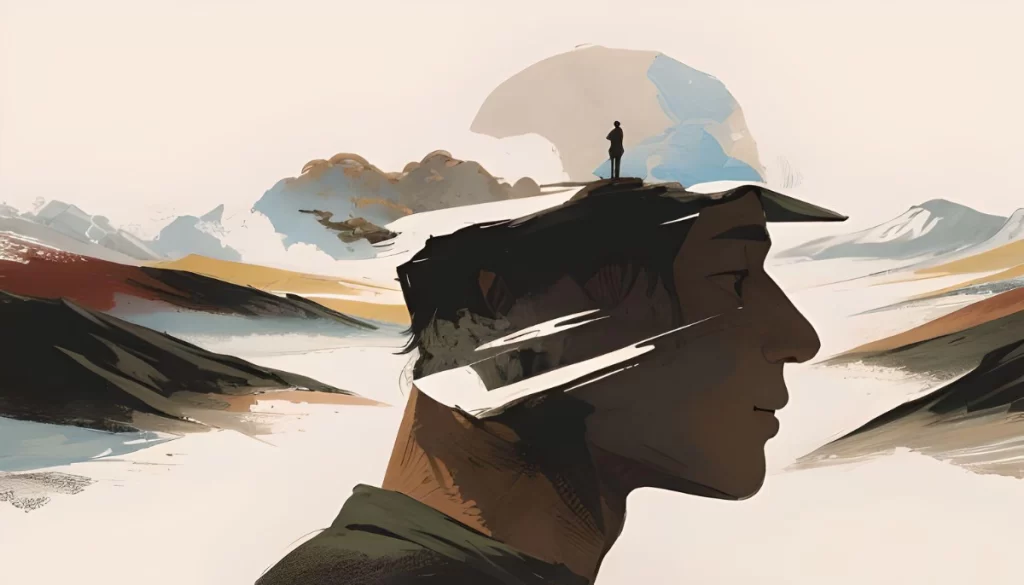Does the thought of death jolt you into immediate fear? sadness? pain? despair?
Do you live in denial to the reality of death?
Have you ever thought that the reason for these negative feelings surrounding death is because of the relationship you have built consciously and unconsciously with it?
We each live an extraordinary life with two days in common: the day we are born and the day we die.
There is no question that most of us steer away from the concept of death. Most of us avoid thinking or talking about the subject as if this denial or ignorance nurtures bliss. This could not be further from the truth. While the topic of death can be very draining and mood altering, death can be a very useful concept – and even an ally. You’re going to have to trust me on this until you to get to know death more intimately for yourself.
It’s not hard to notice a trend of why we shy away from death – we are not given a lot of chances to delve deep into how we feel about it. Death is often a very ‘hushed’ topic or it is only spoken about when it is necessary, which is when the actual occurrence has happened or is happening – e.g. a loss of a loved one or facing end-of-life. This is unfortunate – because it actually makes death so much more frightening and scarier when we wait until it shows up in our lives – that is, if we are even lucky enough to have the opportunity to share our feelings and thoughts about death as we are facing it. The truth is – not everyone gets that chance.
But think of it this way: if death was taught to be welcomed in a space to be explored as early as grade school, the foundation of a healthy relationship with death would be formed – and chances are, it may even enhance our quality of life. Don’t get me wrong, it’s not to say that you should want for death to happen directly or indirectly to you, but more so, to accept the reality of it.
Still not convinced?
Let me give you some reasons why you should consider getting comfortable with death.
Reasons to Befriend Death

- Death is going to happen no matter what you think, feel or do. It will visit you whether you are prepared for it or not. So, rather than living in denial, step into the real world of your mortality. You may find insight and wisdom here that could change the quality of your life.
- Death is universal. No matter our differences, death is one thing we all have in common. Life and death connect us all. It transcends race, religion, beliefs, socio-economic status, culture, and lifestyle. We all face that ultimate outcome and we all struggle in our own ways to come to terms with it. Death is a pathway towards peace and harmony – and helps us establish compassion by sharing this common pain and fear.
- An awareness of death enables us to live more deliberately. Our constant accumulation of ‘stuff’ begs the question: Is this just another denial of our mortality? We are conditioned to think that buying stuff can provide us with status, meaning, value and stability. Our consumer habits and the environmental impact of manufacturing, distribution, and waste have created some huge global issues (which is another topic within itself). All too often there is a desire to acquire more and more without any thought about what happens to it all when we die. Knowing that our time here is limited can make us think about our legacy, the way we treat our planet and what we are leaving behind for generations to come. From my years of experience with patient dealing with the end-of-life, none of them wished they had made more money, worked harder or bought more things. The common theme I ascertained from them is that a meaningful life is one that gives more than it takes.
- Feeling less fearful or anxious about death. Having death by your side as an ally instead of an enemy can make dealing with it a little less scary.
- Improved Responsibility. Though you cannot prevent death, you can ensure everything is in place in the event you become ill (treatment preferences), writing a will, and deciding how you want your funeral service to be conducted. This will help to make it easier for your family members at the time of your death. In addition, in the event of a family member or friend passing you will understand this process and be able to understand what comes next as their assets are parted. Planning ahead doesn’t mean you will die soon or that you will manifest death – death is already all around us. It’s doing your part to prepare for the inevitable.
- Death makes life more precious. When we recognize that life is limited and will one day end, we can utilize this knowledge to bring deeper meaning to every aspect of our lives as we learn to savor our moments.
Remembering that I’ll be dead soon is the most important tool I’ve ever encountered to help me make the big choices in life. Because almost everything — all external expectations, all pride, all fear of embarrassment or failure — these things just fall away in the face of death, leaving only what is truly important. Remembering that you are going to die is the best way I know to avoid the trap of thinking you have something to lose. You are already naked. There is no reason not to follow your heart.
– Steve Jobs
As you continue digesting the thought of death, let me clarify why dying and death is such a discouraging thought and provide you some ways that you can take to improve your current relationship with it.
Exploring Death
When I bring up the topic of dying or death in therapy, it’s funny how the first thought often leads people to think as if they should sit around welcoming its arrival. This is not the aim of exploring the reality of death. Though this may seem like a practical joke or as if someone might be jeering you, it is possible to build a healthy relationship with death. The truth is that the exploration of death, in and of itself, allows you to build a relationship with death by prompting you to focus on the things that truly matters.
It’s not uncommon for people to react strongly to others who openly speak about death and dying – it’s often a projection of discomfort and fear, which can be displayed as comments such as “weird” or “morbid.” This is a common reaction to many topics in mental health including, but not limited to, suicidal and homicidal thoughts. The efforts to de-stigmatize and improve the landscape of mental health requires earlier education.
I once had a debate with a parent of a patient I was working with about death education. Their initial reactions were, “my child is too young.” People may argue that it is not necessary to teach a child about death because they are too young to understand it – but when is the right time? When is the right time to talk about universal facts and truths about life? What are we protecting them from? Children lose loved ones too. In fact, it may be more difficult for a child to deal with a loss if they don’t understand about death. This parent’s child, who was my patient, was only 6 years old – but was struggling with suicidal and self-harm thoughts. Now, I know for most people, this may seem absurd.
But, let me remind you all that suicide, death and dying and other painful topics are happening, whether we talk about it or not. So, if you want to improve your fighting chance, break the silence, and talk about it.
It’s a MYTH that talking about these difficult topics will encourage the behaviors. This is false! This is a widespread stigma mentality that INCREASES the fear of opening up, leaving many to struggle in silence and not ask for help. It is a mistake to assume that people, especially children and young people, do not want to know or understand about death and dying.
Back when I was working at the children’s hospital at Stanford, I had opportunities to rotate in the oncology department to support with palliative care – where children were fighting cancer or dying from cancer. I met a child with advanced cancer, about 8 years old, and remember talking to him about dying.
I approached him, “hey bud, look how cool your room looks,” pointing at a drawing of Spiderman on his wall, “this has got to be you, right here. Spiderman is so awesome. What do you like about him?”
Boy: “He’s a kid, like me, and he’s doing his best to figure out how to deal with big responsibilities.”
Me: “I hear ya on that one, bud – so young and taking on such extraordinary responsibilities – some of which many adults themselves are not even prepared to take on,” I took a deep sigh, “it’s a lot to take on. Even heroes need support. You know, I’m okay with talking about all this, if you want to,” gesturing at the room he was in.
Boy: “I’m trying to stay positive and be strong.”
Me: “How’s that going?”
Boy: “It’s okay. I don’t want to upset my parents. They’re having a hard time.”
Me: “I really respect you for trying to be strong, especially for the people you care about. What’s happening here isn’t easy. And I can only imagine that there’s a part of you somewhere trying to figure out how to deal with such a big responsibility. May I speak with that part of you? The part of you that is dealing with all the scary stuff? It’s just a guess, but I think that part of you could use some support.”
Boy: “I talk to one of the other kids here. That helps.”
Me: “Oh good. What do you talk about?”
Boy: “Dying.”
Me: “What comes up when you think about dying?”
Boy: “It’s going to happen. And I just want to make sure that they (his family) will be okay. I want to be happy until it does happen.”
Me: “Have you been able to talk about that with your family?”
Boy: “Sort of. Not really.”
Me: “What do you say we change that and give your parents a chance to be brave for you? You don’t have to be alone in any part of this. We can do this together as a team, only if you want to?”
This patient’s parents struggled being truthful with their child, thinking that they were protecting him. But, most children with advanced cancer already knows or at least suspect that they are dying. Not openly talking about this with the child does not give him or her the opportunity to process and work through their worries, fears, and ask questions. And talking about the child’s end-of-life care, as hard as it is, allows you to have closure by sharing memories, express love, and savor the fleeting moments with more intention and purpose.
Death education SHOULD start at a young age and should be discussed before anyone encounters it. There needs to be a general support for the inclusion of death education in the school curriculum and in the homes. And pushing this level of support and inclusion starts with dealing with our own personal attitudes and anxieties concerning death and dying.
Changing the Relationship with Your Mortality

There’s no secret here. The first step to building a healthier relationship with death is by talking about it. Here are some ways you can consider to start your journey in building more harmony with death:
- Use the Gestalt therapy method of the Empty Chair Technique. Simply, with this technique, you are conducting a dialogue with an aspect of yourself, a concept, or someone significant in your life, who is imagined to be sitting in an actual empty chair across from you. You can also switch places and take on the role of that other aspect or person. This is similar to role-playing, but doing so with yourself. The idea is to resolve internal conflict by bringing the situation to the here-and-now and increasing awareness of it.
- Practice the acceptance of death. Most of us have never accepted or prepared for death and will exist in a pocket of denial right up to the end of life.You may not like the fact that you’re going to die but embracing its inescapability is the first step to removing some of the angst and mystery surrounding the subject. The beauty of learning to accept death leads to a life of greater gratitude, purpose, and consciousness. You learn to accept that tomorrow isn’t promised thus making the best of today is a gift and privilege. Death can be your greatest teacher.
- Prepare and plan for death. I’m not talking about planning how you will die. I’m talking about taking in the logistics surrounding the process of death and grief. We prepare for milestones like childbirth and marriage but rarely for death. So when broaching a subject as expansive and complicated as death, a good starting point is dealing with some of the more practical matters: writing a will, funeral planning, advanced directives (i.e. your wishes regarding medical care if you are ill), organizing and decluttering your belongings, and putting your finances and other important aspects of life in order. This will give you a peace of mind by ensuring that you will not be leaving anyone to decide or second-guess what you want. We’ve all seen this too often with how the death of a loved one can create family tension and fall-outs – as members of the family make difficult decisions and believing they know that person best. So, do your family and loved ones a favor and get this in order.
- Be curious about death. Read stories, educate yourself, volunteer at a hospice, talk to insightful people, and have conversations about it. Allow yourself and others to experience all the emotions surrounding death.
Final Thoughts
Befriending death has the potential to lead us to live a more deliberate, responsible, and fulfilling life. So, no matter what your current situation is, stop for one moment and consider the fragility of your own life. Can you make room for death to enter your thoughts every now and then? Can you get comfortable with the idea that death is a part of your life? You have much to gain from getting comfortable with death. Death can be the best friend that will never desert you.
The truth is – sometimes it really does take death or dying to arrive before we actually start thinking about how to live. We see it in movies all the time – someone who is dying can become more present in a way they weren’t before, prioritizing what’s important, adjusting their outlook, and being more aware of their mortality. It can lead us to certain realizations about life – to feel connected to something much larger than ourselves – or the little things we often take for granted can be transcended from the ordinary – e.g. a walk is no longer just a walk, the air we breathe is no longer just air, etc. My point is: we don’t need to wait until we are actually dying to learn how to deepen our appreciation towards what matters most to us.
About Author
Albert Nguyen is a licensed psychotherapist in private practice. He specializes in providing an integrative and eclectic approach to mental health care that includes personal self-care, anxiety and depression, and peak performance in children, teens and adults. Reach out for more information on how he can be of service to you here.






